MercoPress. South Atlantic News Agency
Tag: poverty
-
Monday, January 22nd 2018 - 09:57 UTC
Gap between super rich and the poor at its widest, claims Oxfam
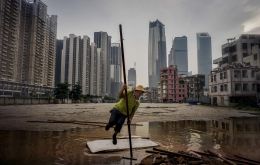
The gap between the super rich and the rest of the world widened last year as wealth continued to be owned by a small minority, Oxfam has claimed. Some 82% of money generated last year went to the richest 1% of the global population while the poorest half saw no increase at all, the charity said.
-
Wednesday, December 27th 2017 - 09:52 UTC
US poverty rate down; but top 5% of families accounted for more than one fifth of total income in 2016

A stronger US economy lifted American household incomes in 2016 and drove the poverty rate down to the level seen before the financial crisis. The median household income increased by 3.2% to US$59,039, rising for a second consecutive year as more people found full time jobs.
-
Saturday, December 23rd 2017 - 10:14 UTC
Venezuela's economy contracted a massive 16.5% in 2016, admits government
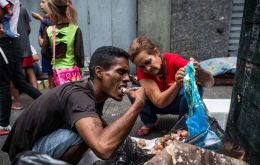
Venezuela's economy shrank a massive 16.5% in 2016, according to an official government filing to the US Securities and Exchange Commission (SEC). The oil-rich but impoverished country attributed the collapse to a contraction of 9.9% in the oil sector and 16.1% in the non-oil economy.
-
Monday, December 18th 2017 - 13:47 UTC
Half of the world population without health services, says WHO/World Bank report

At least half of the world’s population cannot obtain essential health services, according to a new report from the World Bank and WHO. And each year, large numbers of households are being pushed into poverty because they must pay for health care out of their own pockets.
-
Wednesday, August 27th 2014 - 06:11 UTC
Some 200 million people remain vulnerable in Latam despite lesser poverty
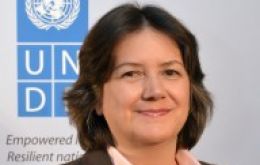
More than 56 million people have been lifted out of poverty in Latin America and the Caribbean in recent years, according to the United Nations Development Program (UNDP). But despite the progress, it warned that some 200m people, or 37.8% of the population, remained vulnerable.
-
Wednesday, April 30th 2014 - 08:57 UTC
Poverty in Argentina stands at 27.5% of population, says Catholic University

Poverty and indigence in Argentina in the last quarter of 2013 again increased and reached 27,5% of the population and 17.8% of households, according to the latest report from the Catholic University Social Debt Observatory, UCA.
-
Friday, February 24th 2012 - 19:07 UTC
Caritas Spain: 22% of households below poverty line, another 30% on the cliff
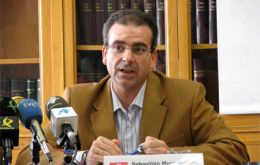
A report examining Spain’s current levels of poverty has made national headlines after its launch revealed shocking figures. Caritas Spain has drawn attention to the precariousness facing millions of people at a time when networks of social aid are in danger of disappearing.
-
Tuesday, January 31st 2012 - 05:01 UTC
One in three workers worldwide unemployed or living in poverty, says ILO
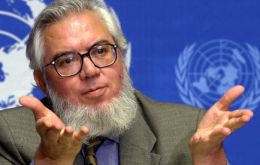
The world faces the “urgent challenge” of creating 600 million productive jobs over the next decade in order to generate sustainable growth and maintain social cohesion, according to the annual report on global employment by the International Labour Organization (ILO).
-
Tuesday, November 29th 2011 - 23:05 UTC
Poverty in Latam at lowest level in 20 years; but 174 million are still below the line
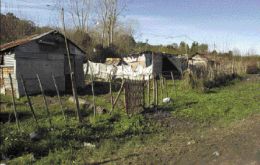
Poverty and indigence in Latin America and the Caribbean are at their lowest in twenty years according to the latest report from the UN Economic Commission for Latin America and the Caribbean, ECLAC, released on Tuesday in Chile.
-
Saturday, November 26th 2011 - 03:16 UTC
Bolivia admits 26.1% live in extreme poverty but not on the hunger fringe

The Bolivian government strongly rejected a statement from a FAO (UN Food and Agriculture Organization) official saying that 26% of the population (2.5 million people) is on the hunger fringe since they can not satisfy their basic food needs.
